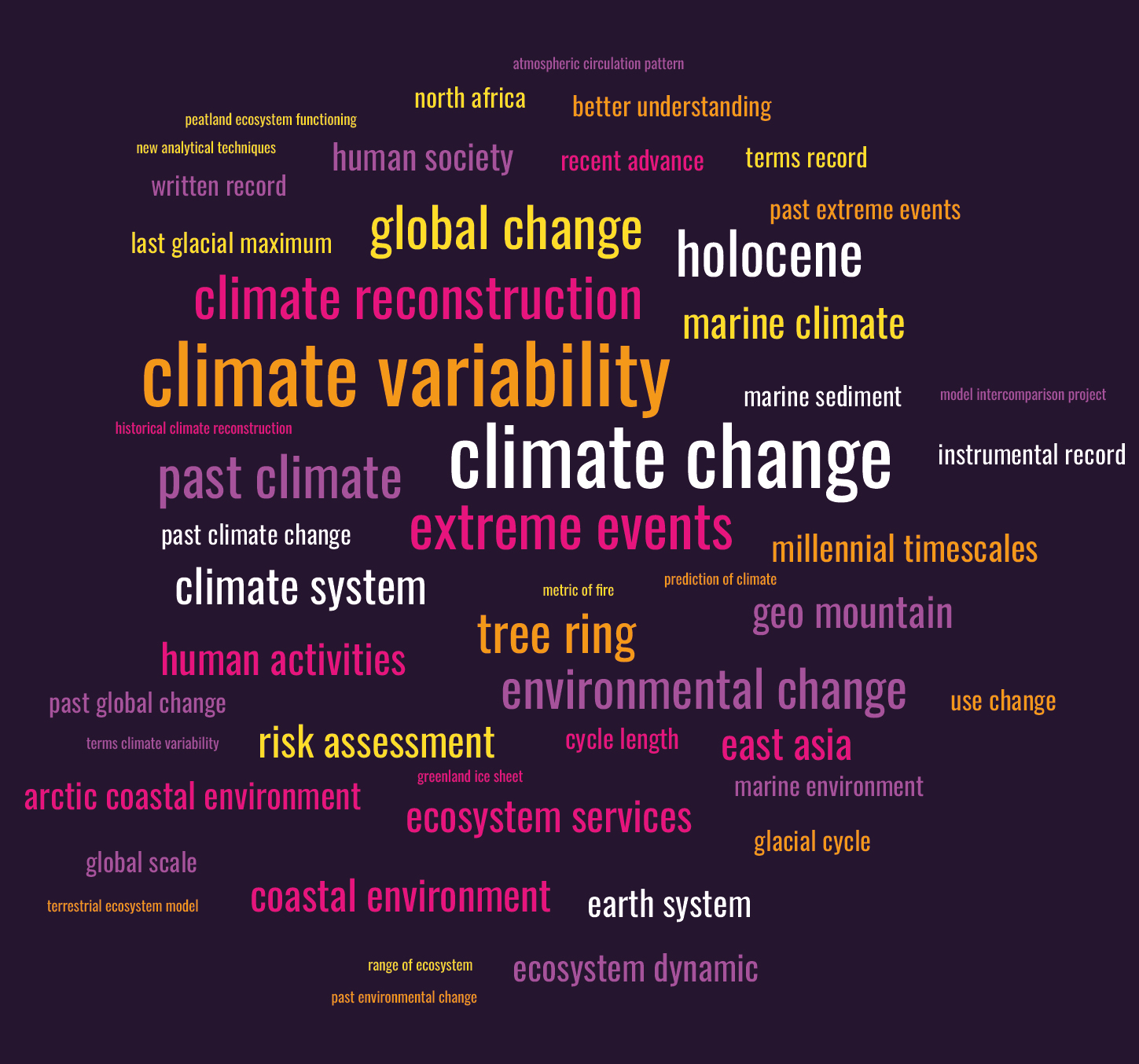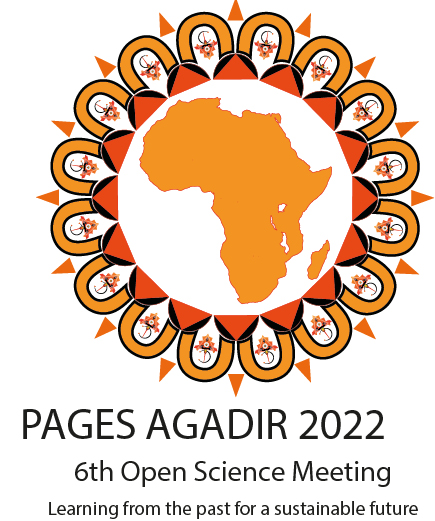- Home
- Publications
- PAGES Magazine
- Learning From The Past For a Sustainable Future
Learning from the past for a sustainable future
Bouimetarhan I, Cheddadi R, Reddad H, Baqloul A, Carré M, Abouhilal A & the local organizing committee
Past Global Changes Magazine
30(2)
123
2022
Ilham Bouimetarhan![]() 1, R. Cheddadi
1, R. Cheddadi![]() 2, H. Reddad
2, H. Reddad![]() 3, A. Baqloul
3, A. Baqloul![]() 1, M. Carré
1, M. Carré![]() 4, A. Abouhilal
4, A. Abouhilal![]() 3 and the local organizing committee
3 and the local organizing committee
PAGES 6th Open Science Meeting, online, 16-20 May 2022
What would have been an in-person conference in May 2021 in Agadir, Morocco—with on-site sessions, and informal talks during the coffee breaks or at the Agadir bay—turned into an online meeting, postponed due to the world pandemic and uncertainties related to travel restrictions, marking a first in the history of the PAGES Open Science Meetings (OSM; pages-osm.org). Although completely online, we were proud to bring the global paleo community together: 505 participants from 46 different countries attended the 6th OSM online. Among the participants, 40% identified as female; 67% of the attendees were senior researchers; and 33% were students. While 83% of our delegates came from high-income countries, only 17% were from low- and middle-income countries.
The program of this virtual OSM was built around PAGES' scientific themes of climate, environment, and humans, and featured 430 abstracts presented in 31 sessions as 129 posters, 128 lightning talks, and 301 oral presentations, with four parallel sessions running simultaneously. The program included the first PAGES OSM session dedicated to art and science: "Art and science in a changing planet: A past global perspective." Nine keynote speakers provided state-of-the-art contributions on a wide range of paleoscientific topics encompassing glacial refugia and future microrefugia evolution (Rachid Cheddadi, France), the origin of Homo sapiens (Jean-Jaque Hublin, Germany), high and low latitude climate interactions (Hai Cheng, China), learning from past tipping points to avoid future ones (Tim Lenton, UK), the role of paleoclimate model–data comparisons in assessing climate projection levels of confidence (Pascale Braconnot, France), savanna fire response to paleo-rainfall shifts (Alison Karp, USA), flood history of the Himalaya (Pradeep Srivastava, India), dendrochronology and climate in the tropical Andes and lower lands (María Eugenia Ferrero, Argentina), and a past–present–future perspective on using paleoecology to conserve African ecosystems (Lindsey Gillson, South Africa).
Four town halls were organized during the OSM, and were well attended. These included an inclusivity roundtable, a PAGES–Ocean KAN meeting, a workshop on archiving data in community repositories, and a town hall run by the PAGES 2k Network. Despite the fact that the online meeting format did not promote as much social interaction between the participants as it would have in Agadir, the local organizing committee organized a virtual conference dinner where a Moroccan chef guided attendees through some local dishes in a two-hour cook-along session. This session was attended by 30 food lovers from 13 countries.
 |
|
Figure 1: Word cloud based on the scientific sessions of the 6th Open Science Meeting (Image credit: Lindsey Gillson). |
Given the virtual global attendance and the organizational time zone hurdles, all oral contributions were live broadcasts and recorded. The recordings were then made available on the virtual platform to all attendees during the conference and until one month after its end. Currently, all plenaries and opening and closing ceremonies are accessible via the PAGES YouTube channel: youtube.com/PastGlobalChanges/playlists
This online meeting aroused the interest of the local press, with at least six articles in both Arabic and French (mapbenimellal.ma/fr/beni-mellal-ouverture-des-travaux-de-la-conference-internationale-pages-sur-les-changements-climatiques).
The 6th OSM would not have been possible without the strong and sustained commitment of all members of the organizing and scientific committees over almost two years, as well as the great help of the Shocklogic team for managing the online event. We have learned so much about the latest global change research and seen how paleoscientists are undertaking enormous efforts to assess the high complexity of past global changes to gain a better understanding of the general forces controlling them. We thank all participants for their valuable contributions and for taking part actively in the discussions during the conference to make it a successful event, and we hope to see you in person at the PAGES 7th OSM!
affiliationS
1Ibn Zohr University of Agadir, Morocco
2ISEM, University of Montpellier, CNRS, IRD, France
3University of Sultan Moulay Slimane of Beni Mellal, Morocco
4LOCEAN, Sorbonne University (Pierre and Marie Curie University), Paris, France
contact
Ilham Bouimetarhan: i.bouimetarhan uiz.ac.ma
uiz.ac.ma
